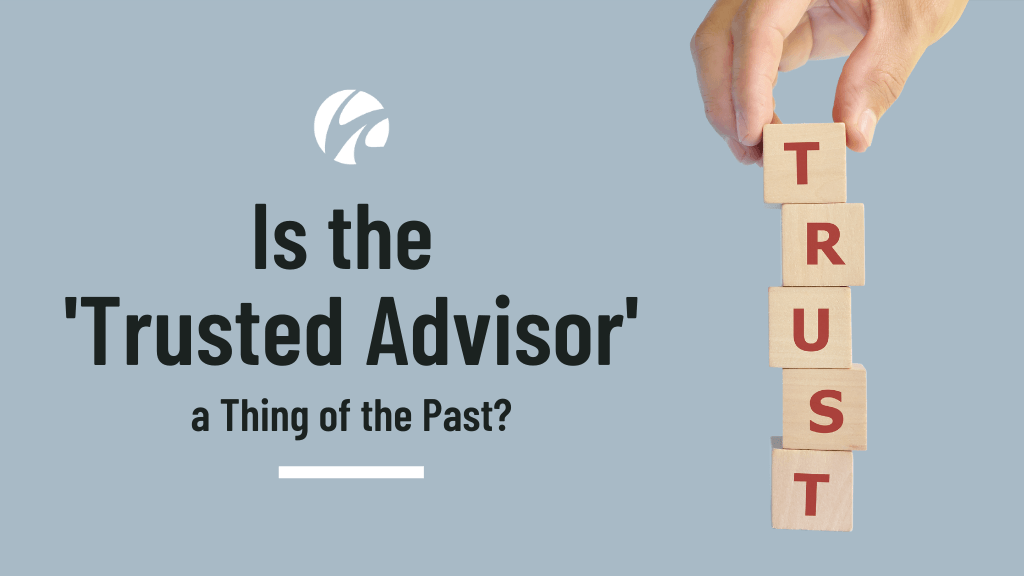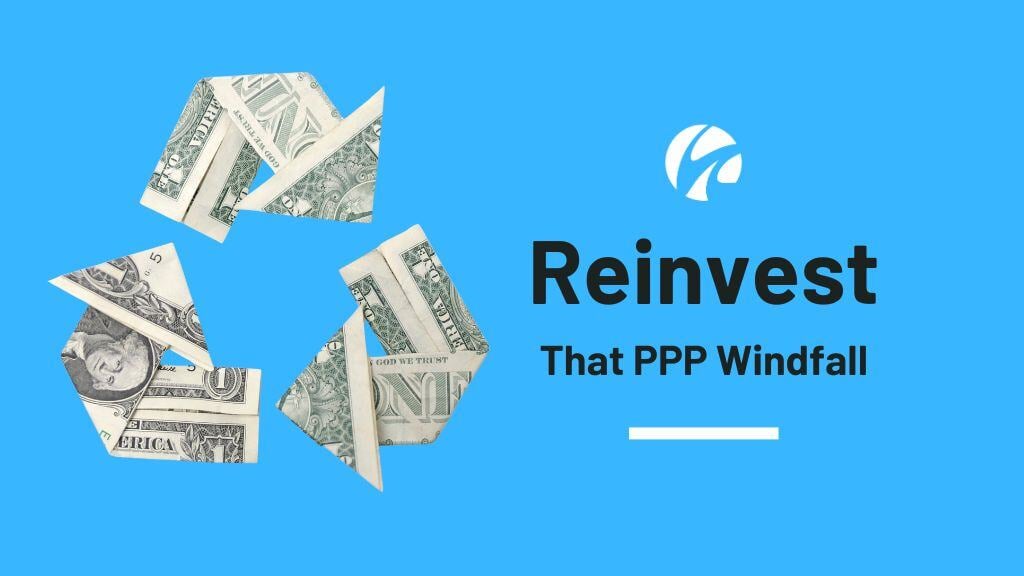2 min read
Is the 'Trusted Advisor' a Thing of the Past?
Reprinted with permission from Accounting Today When the CPA profession was born many years ago, we started as bookkeepers, tax preparers and...

Gary is the visionary behind Winding River Consulting, bringing decades of transformative leadership to the accounting profession. Widely recognized as one of the industry's most influential leaders, Gary has shaped the future of firms through strategic planning, national leadership, and the authorship of several books. He is an E&Y Entrepreneur of the Year, an Accounting Today’s (inaugural list of) Top Ten Managing Partner Elite honoree, and a consistent presence on the profession’s Most Influential lists. Gary remains a sought-after consultant and advisor to the profession’s most forward-thinking firm leaders. As the architect of WRC’s mission, he continues to mentor firm leaders with a values-first approach and deep belief in aligned leadership.
Table of Contents

I have a 42-year history in public accounting. I founded and ran one of the largest CPA firms in the country for three decades. I’ve consulted with dozens of firms currently and throughout my career, and through my new programming, the Managing Partner Bootcamp, I am currently working with 100 firms from around the world. My varied industry experience lends me a unique perspective into where we are heading. This exposure has taught me that every crisis, recession and global event has left its indelible marks on our industry — and the marks that will be left behind by COVID-19 are true game changers like no others. Some of the ways in which we manage our practice will change forever, and some things we do will be stalled or furloughed for a bit.
Three elements of our practice have changed forever: the unprecedented move to a virtual practice, the client experience and our relationships with traditional office real estate.
1. The virtual practice. The big game-changer is the “virtual practice.” I have talked for many years about the evolution toward a “virtual practice.” In my short association with BDO, after my practice was sold to them, I marveled at how effective BDO was at evolving toward a virtual practice. The key word is evolving. The largest firms in the world had already taken virtual to an evolved level before COVID-19, which made this transition much easier for them.
But over the course of my consulting career, I often asked smaller and midsized firms if they had a virtual strategy. Almost every one said they had virtual workers, but no virtual strategy. And who were these virtual workers? They were those who worked for the firm previously and moved out of the area; they were valued employees who were set up with remote capabilities and continued to work for the firm.
In recent weeks, I have talked to around 100 firms and all of them successfully made the transition to working virtual. They were all patting themselves on the back — they figured it out and were producing work virtually. This is a tremendous accomplishment, but only the tip of the iceberg. I saw the industry evolving this way over many years, but COVID-19 has turned a years-long evolution into a one-day event.
Firms should not think they will go back to “normal” at some time. They will not! This will be a forever change. Why? For the short term, as we get back into our offices, we will be forced to “socially distance” ourselves — not everyone will be back in the office at once, perhaps only half the office at a time. Employees with children may not have access to school, camp or childcare, and may be forced to stay home. Many of our millennial employees that longed for the ability to work virtually now know they have that capability and firms are not going to be able to renege on the virtual option. In large metro areas that depend on mass transit to get their employees to work, mass transit may not be so “mass” for a while.
Daily management of our workforce is profoundly different. How do we handle productivity, performance, team projects, communication (client or internal), security, etc.? From a virtual administrative standpoint, how do we handle on-boarding new employees, employee reviews, training, interns, hiring, etc.? Our firms have no experience, strategy or plan for this change.
2. The client experience. Many have built very successful firms by utilizing a highly curated CX, or client experience. Have social distancing and Zoom marginalized the client experience? How do we deliver our firm’s custom experience in a virtual environment? If all is marginalized and devalued, does CX ultimately disintegrate into a price war? What about marketing for new clients — proposals, social media, messaging? Many of us built our practices on a commitment to networking and relationship-building, which now may be skills and strategies of the past. How do these change?
The answer, much like the virtual practice, is going to be contingent upon execution of a “virtual strategy.” We can try and logically think through what all of this should look like, or seek out consultants who can help us develop and execute the right plan of action. I don’t have the answers. I do have questions that must lead to a new and effective strategy to handle what is ahead. I would be seeking outside advice from the experts and using this information to craft my strategy.
3. Office real estate. Our industry’s relationship with commercial office real estate has also changed forever. A few anecdotes from recent conversations with firm managing partners from around the country:
The relationship between growth and real estate is over. Our future growth plans will no longer be constrained by square footage and/or location. Years ago, at my former firm SS&G, we were successful in building a national restaurant practice from Ohio-based locations. This monumental accomplishment would have been so much easier in a virtual setting.
Stalled and furloughed are our rapid move to advisory services, merger and acquisition activity, and our move toward diversity and inclusion in our practices.
1. Advisory services. As in any crisis, certain advancements and movements will stall in order to make room for crisis issues and reprioritization of firms’ provisional strategic efforts. I do believe that the movement of firms toward “advisory” is inevitable. However, during recessionary periods clients only buy what they need and advisory/consulting services all but disappear. I foresee a 180-degree switch back to tax, audit, accounting and outsourcing in the interim.
We saw this retraction of purchased services by clients in 2001 and 2008. Historically, a recession limits (in general) revenues and growth in ancillary services. Of course, some firms have taken advantage by offering new (Paycheck Protection Program loans) and enhanced (cash flow forecasting) services to name some obvious opportunities.
2. M&A. The quite robust merger and acquisition activity will also stall for a while. The underlying reasons for the robust activity are still solid. The stall will relate to firm prioritization and a recalibration of firm value. You might also expect terms to change. I also expect a significant increase in supply of smaller firms “calling it a day” and looking to merge up. Keep an eye on this trend — this would be a nice opportunity to grow. As always, be careful — bad mergers and acquisitions are bad business.
3. D&I efforts. Over the last few years I have been a big proponent of diversity and inclusion efforts within the industry. Quite obviously, the CPA profession employee makeup does not match the makeup of our country. These efforts are important and critical, but will also stall for the time being. With huge layoffs around the corner (July 1, when the PPP measuring period ends) there will be no foreseen shortage of accountants.
As a managing partner or member of your firm’s leadership, you earn the big bucks to handle the big problems. Go earn your money. Be smart, be strategic, show empathy — but do not hesitate! You need to develop a strategy going forward with no excuses on execution. If you don’t change, the changes around you will do you in.

2 min read
Reprinted with permission from Accounting Today When the CPA profession was born many years ago, we started as bookkeepers, tax preparers and...

4 min read
Recently, a friend of WRC and former client - Brandon Hall - put together his perspective on Gary Shamis's latest article around The Trusted...

1 min read
Reprinted with permission from Accounting Today. In the end, did our firms really need the Paycheck Protection Program federal grant/loan that we...